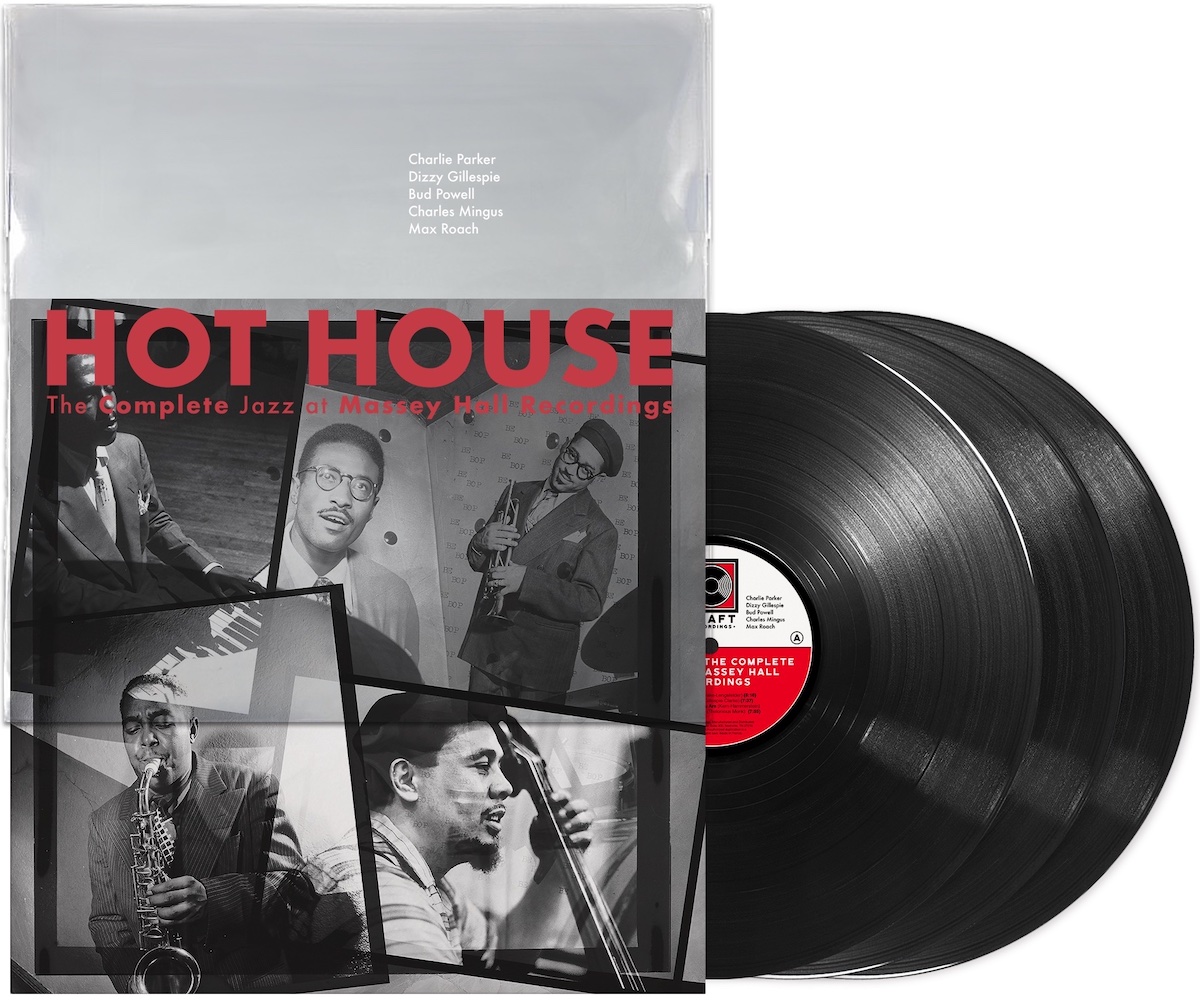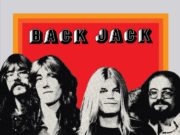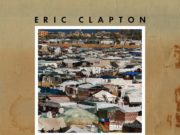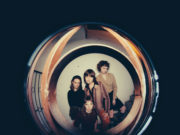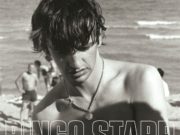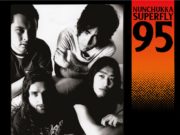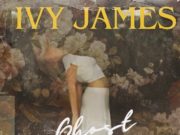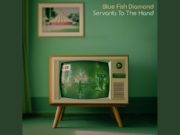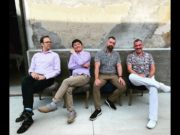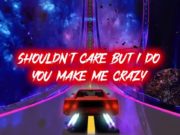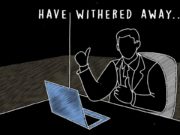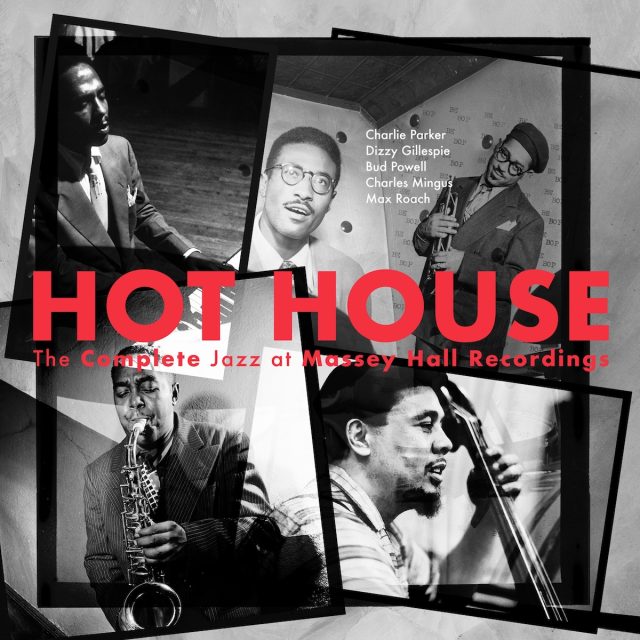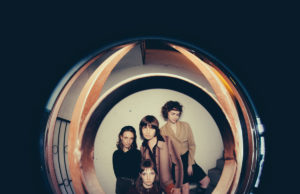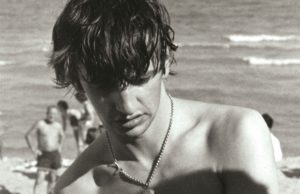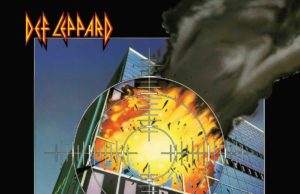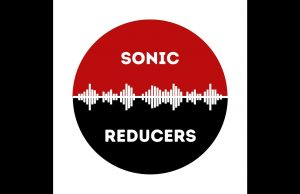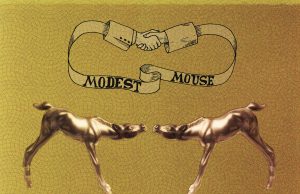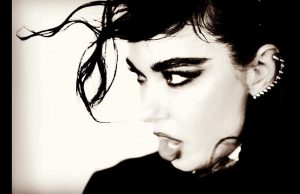THE EDITED PRESS RELEASE: “On May 15, 1953, five of jazz’s most influential musicians — Charlie Parker, Dizzy Gillespie, Charles Mingus, Max Roach and Bud Powell — gathered at Toronto’s Massey Hall for what would result in their first and only known recording as a quintet. While only a small audience was able to experience it in person, this historic evening was captured on tape. The resulting album, The Quintet: Jazz at Massey Hall, would become one of the genre’s most essential and celebrated releases.
Now, Craft Recordings commemorates the 70th anniversary of this singular concert with Hot House: The Complete Jazz at Massey Hall Recordings, a definitive collection that presents the entirety of the evening’s recorded material by the members of this quintet. Arriving Nov. 17 and available for pre-order today, the three-LP, two-CD and digital release features meticulous 24-bit audio restoration and remastering by the Grammy-winning engineer Paul Blakemore. Lacquers for the vinyl edition were cut by Kevin Gray at Cohearent Audio and pressed on 180-gram vinyl.
Rounding out both physical formats are rare photos from the evening, plus two essays that offer fascinating behind-the-scenes stories. The first is by David Scharf, whose father Alan Scharf was among the concert’s organizers and was one of the photographers who documented the event. The second was written by Don Brown, an attendee at the show, who provides a captivating play-by-play account of the evening.
This 19-track box set includes the quintet’s original 12-inch Debut Records LP release (featuring bass overdubs by Mingus), plus all six quintet tracks without overdubs, as well as performances by the Powell/Mingus/Roach trio, and Roach’s Drum Conversation, making it the complete collection of the recordings of these five jazz legends that were captured on that extraordinary evening — and, with the latest technology in audio restoration — the best listening experience yet.
Organized by Toronto’s New Jazz Society, the concert booked at Massey Hall in May 1953 presented the leaders of the bebop movement: Alto saxophonist Charlie “Bird” Parker (billed on the subsequent LP as “Charlie Chan,” due to contractual restrictions), trumpet player Dizzy Gillespie, pianist Bud Powell, bassist Charles Mingus and drummer Max Roach. At the time, each player was at the forefront of modern jazz, having revolutionized the genre on their respective instruments, while Gillespie, Powell, Mingus, and Roach all considered Parker to be an influence. Although their paths had crossed individually over the years, this particular evening was the first and only time that all five musicians would record as a quintet. Recognizing the importance of the event, Mingus set up recording equipment; later releasing the concert on Debut Records, the label he co-founded a year earlier with Roach.
Compilation producer Nick Phillips explains, “This legendary live concert recording was not only the only time that these five modern jazz giants recorded together as an ensemble, but it was also the last authorized recording that bebop pioneers Charlie Parker and Dizzy Gillespie made together. The incredible playing — especially the incendiary musical fireworks that Parker and Gillespie spurred from each other ˆ more than matches the enormous historical significance.”
Organizers assumed that the 2,753-capacity venue would easily sell out, given the supergroup-status lineup. What they didn’t consider, however, was the evening’s heavyweight championship fight between Rocky Marciano and Jersey Joe Walcott. Only about a third of the tickets sold. In his essay, Dan Brown recalls that the night began inauspiciously. After a brief opening set by a 17-piece big band, billed as the CBC All Stars, the headliners took to the stage.
Brown recalls, “One got the impression that nothing had been worked out by the musicians beforehand.” Powell, who struggled with his mental health and substance abuse, was visibly under the influence. Parker, Brown writes, “walked out looking like an unmade bed… carrying a white plastic alto saxophone. We later learned his Selmer was in the pawnshop.” Gillespie, meanwhile, “seemed more interested in the championship fight than the proceedings at hand (and) kept slipping backstage between solos” to hear updates on the radio.
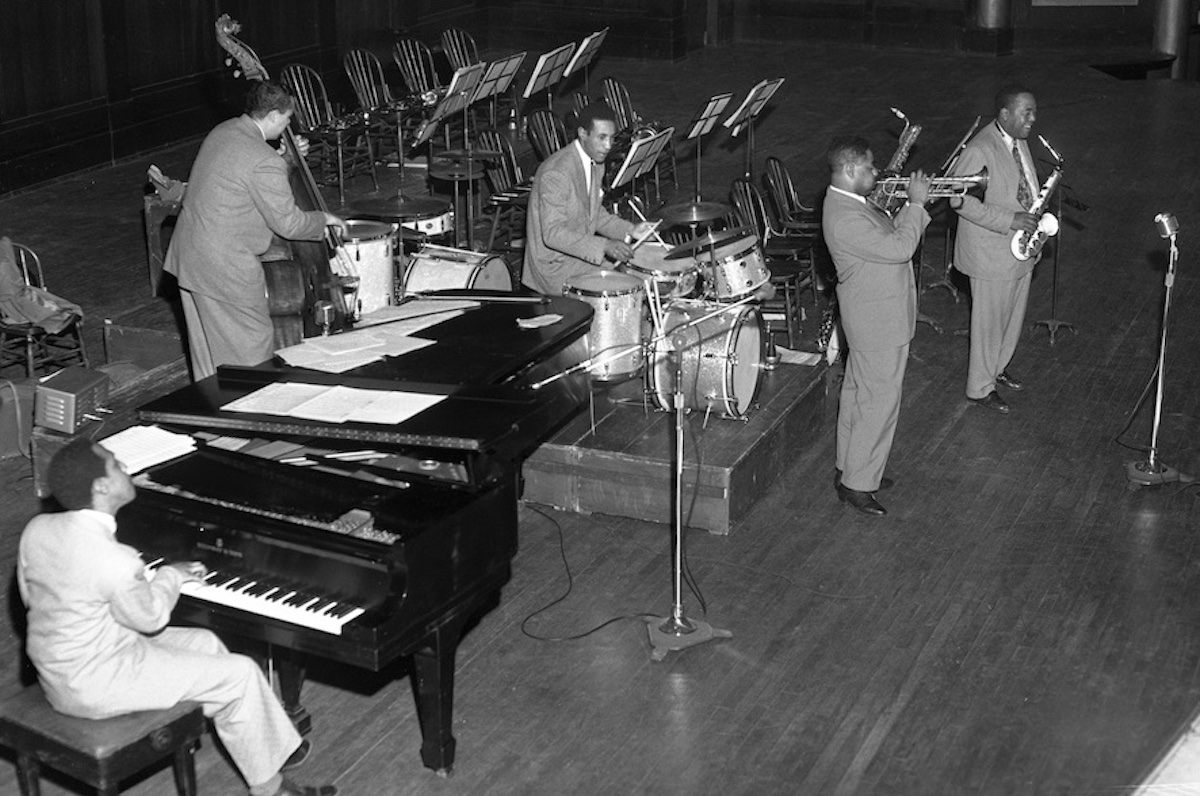
As the band kicked off with a searing rendition of Juan Tizol’s Perdido, however, it was clear that the interplay between the musicians would be the main event. “Onstage, the friendly musical rivalry sparked a melodic firestorm,” adds Brown. “Out of anarchy and chaos, musical genius prevailed.” The lively set also included two originals by Gillespie, Salt Peanuts and A Night in Tunisia — both of which were already jazz standards, as well as bebop classics by Tadd Dameron (Hot House) and Denzil Best (Wee aka Allen’s Alley). On the other end of the spectrum, the quintet delivered an engaging rendition of the Jerome Kern standard All the Things You Are before seamlessly transitioning into Thelonious Monk’s 52nd Street Theme.
Also featured on the album is Roach’s nearly four-and-a-half-minute drum solo, Drum Conversation, which demonstrates the breadth of his genius, followed by six selections from Powell, Mingus, and Roach. Powell’s virtuosic talents are on display, as he leads the trio through favorites from the Great American Songbook (including Cole Porter’s I’ve Got You Under My Skin, George Gershwin’s Embraceable You, and George Shearing’s Lullaby of Birdland) plus his own Sure Thing.
Following the concert, Mingus, Alan Scharf, and other members of the New Jazz Society traveled to Toronto radio station CKFH, where they borrowed a studio to listen back to the recordings. Alan’s son, David, recalls in his essay, “This was the moment when the group listened and discovered Mingus’s bass had not been recorded. My father blamed the sound technician for the evening. He showed up for the gig, drunk… Enraged, Mingus took the tapes and left the studio.”
Back in New York, Mingus overdubbed bass lines on the quintet’s six tracks. He and Roach released three 10-inch LPs in 1953 on the Debut Records label, with volumes 1 and 3 featuring quintet recordings and volume 2 featuring the Powell/Mingus/Roach trio. Later, in 1956, they issued The Quintet: Jazz at Massey Hall 12-inch LP (featuring the quintet performances with Mingus’s bass overdubs), a year after Parker’s untimely death.
Over the decades, The Quintet: Jazz at Massey Hall would only grow in its importance. In 1995, The Quintet: Jazz at Massey Hall was inducted into the Grammy Hall of Fame.”
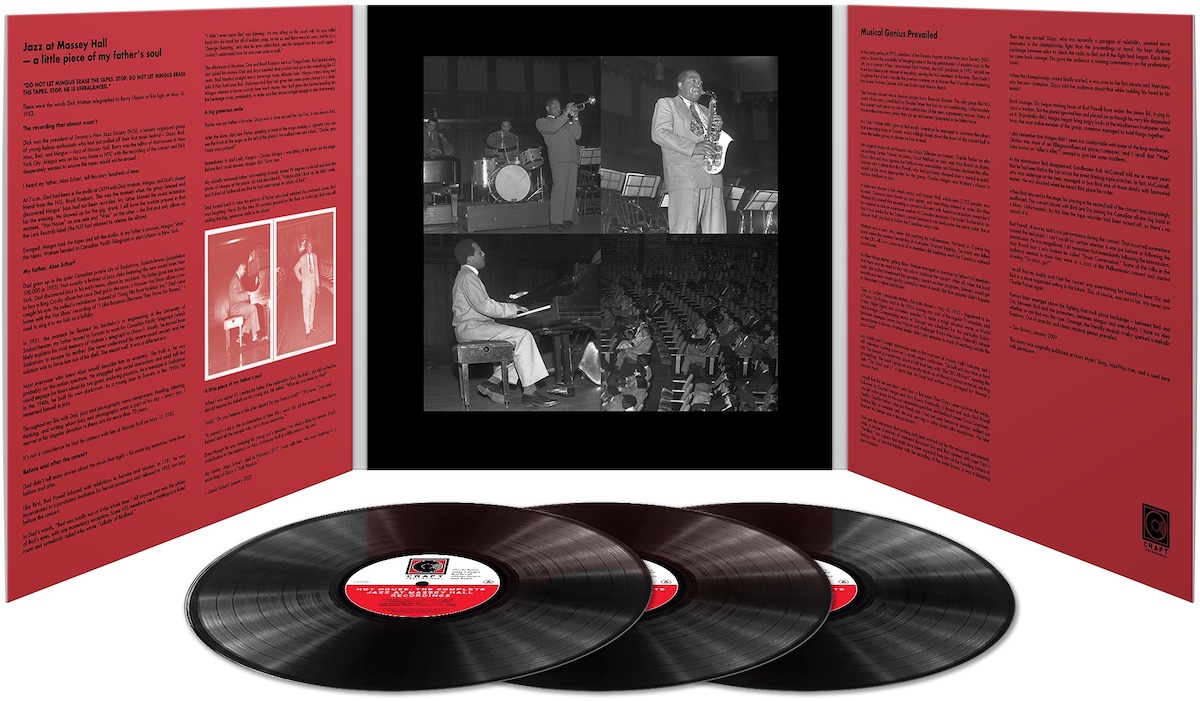
Hot House: The Complete Jazz at Massey Hall Recordings Track List
Disc One (Without Bass Overdubs)
Side A
1. Perdido
2. Salt Peanuts
3. All the Things You Are/52nd Street Theme
Side B
1. Wee
2. Hot House
3. A Night in Tunisia
Charlie Parker – alto saxophone
Dizzy Gillespie – trumpet
Bud Powell – piano
Charles Mingus – bass
Max Roach – drums
Vocals on Salt Peanuts: Dizzy Gillespie and Charlie Parker
Disc Two
Side C
1. Drum Conversation
2. I’ve Got You Under My Skin
3. Embraceable You
4. Sure Thing
Side D
1. Cherokee
2. Hallelujah*
3. Lullaby of Birdland
Bud Powell – piano
Charles Mingus – bass
Max Roach – drums
*This selection was misidentified as Jubilee on earlier releases.
Disc Three (With Bass Overdubs)
Side E
1. Perdido
2. Salt Peanuts
3. All The Things You Are/52nd Street Theme
Side F
1. Wee
2. Hot House
3. A Night in Tunisia
